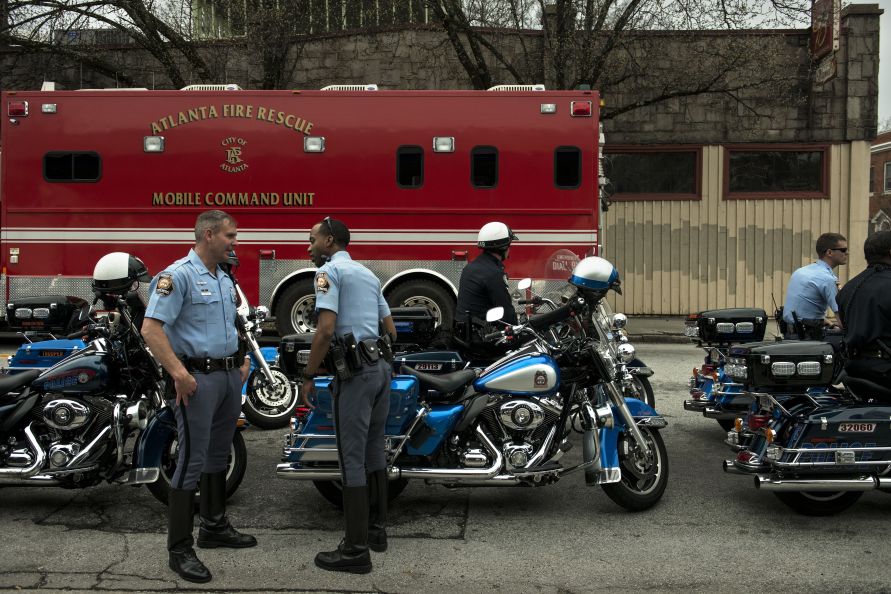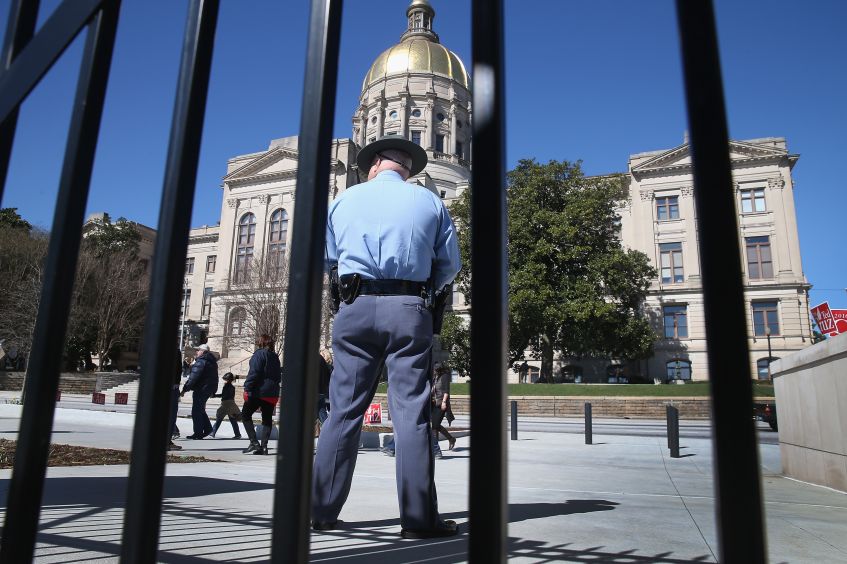Calling the police is one of the most common responses when people encounter emergencies or situations that require immediate attention. The number "12" might seem unfamiliar to many, but in certain regions, it serves as an emergency contact for law enforcement. Understanding why people call the police and the significance of such numbers can help communities stay prepared and informed. In this article, we will delve into the reasons behind calling the police, the role of emergency numbers like "12," and how they contribute to public safety.
Emergency situations can arise at any time, and knowing the right number to dial can make all the difference. While "911" is widely recognized in the United States, other countries and regions have their own emergency codes, including "12" in some areas. This article aims to provide a comprehensive understanding of why people call the police, the importance of emergency numbers, and the role of law enforcement in maintaining public safety.
Whether it's a theft, a domestic dispute, or a life-threatening situation, the police are often the first point of contact. This article will explore the reasons behind calling the police, the effectiveness of emergency numbers, and how individuals can prepare themselves to handle emergencies responsibly.
- Camilla Araujo Onlyfans Leaks What You Need To Know And Where To Find
- Hdhub4ucom Your Ultimate Guide To Hd Movies And Shows
- Filmyfly Bollywood Movies Download Your Ultimate Guide To Bollywood Entertainment
- Stop Movierulz Alternatives Latest Movie Updates In 2025
- India Aagmaal A Comprehensive Guide To Aagmaalcom And Aagmaal Live
Table of Contents
- Why Do People Call the Police?
- The Role of Emergency Numbers in Public Safety
- Why is Number 12 Used in Some Regions?
- A Brief History of Emergency Numbers
- Types of Emergencies That Warrant a Police Call
- The Process of Calling the Police
- Tips for Calling the Police Effectively
- Challenges in Using Emergency Numbers
- Global Perspectives on Emergency Numbers
- The Future of Emergency Response Systems
Why Do People Call the Police?
People call the police for a variety of reasons, ranging from minor disturbances to life-threatening situations. The primary purpose of contacting law enforcement is to seek help in maintaining order, ensuring safety, and addressing crimes. Understanding the reasons behind these calls can shed light on the importance of having accessible emergency numbers.
Some of the most common reasons include reporting crimes, responding to accidents, handling domestic disputes, and addressing public disturbances. By calling the police, individuals can ensure that trained professionals are dispatched to resolve the situation effectively.
Key Reasons for Calling the Police
- Reporting criminal activities such as theft, burglary, or assault.
- Responding to traffic accidents or public safety hazards.
- Handling domestic violence or family disputes.
- Addressing noise complaints or public disturbances.
- Seeking assistance in missing person cases or emergencies involving children.
The Role of Emergency Numbers in Public Safety
Emergency numbers play a crucial role in ensuring that people have quick access to law enforcement, medical services, and fire departments. These numbers are designed to be easy to remember and accessible in times of crisis. In many countries, standardized emergency numbers like "911" or "112" have been implemented to streamline the response process.
- Alana Cho Onlyfans Leaks The Truth Behind The Viral Sensation
- Aditi Mistry Nipple Slip The Viral Incident Controversy Explained
- Vegamovies Filmyzilla Mp4moviez Your Ultimate Guide To Safe And Legal Streaming
- Filmyfly In South Movie Hindi Dubbed Your Ultimate Guide To Bingewatching
- Stay Updated With Movierulz Kannada Movies Latest Releases News 20242025
In regions where "12" is used as an emergency number, it serves the same purpose of connecting callers with law enforcement quickly. The effectiveness of these numbers lies in their ability to provide immediate assistance and reduce response times during emergencies.
How Emergency Numbers Work
- When a call is made to an emergency number, it is routed to a central dispatch center.
- Trained operators assess the situation and dispatch the appropriate responders.
- Emergency numbers prioritize calls based on urgency and location.
Why is Number 12 Used in Some Regions?
The use of "12" as an emergency number is not universal, but it is prevalent in certain regions, particularly in parts of Africa and Asia. The choice of "12" is often tied to historical, logistical, or cultural reasons. In some cases, it was selected because it is short, easy to remember, and less likely to be confused with other numbers.
While "911" and "112" are more widely recognized globally, the effectiveness of "12" in specific regions highlights the importance of tailoring emergency systems to local needs and infrastructure.
Advantages of Using Number 12
- Short and easy to remember for people with limited education.
- Less likely to be confused with other numbers in certain regions.
- Compatible with older telephone systems in some areas.
A Brief History of Emergency Numbers
The concept of emergency numbers dates back to the early 20th century when cities began establishing dedicated phone lines for fire departments and police stations. The first official emergency number, "999," was introduced in London in 1937. Over the years, countries around the world have adopted similar systems, with "911" becoming the standard in North America and "112" in Europe.
In regions where "12" is used, the number was often chosen during the mid-20th century as telecommunications systems expanded to rural and remote areas. The choice of "12" reflected the need for simplicity and accessibility in areas with limited infrastructure.
Milestones in Emergency Number Development
- 1937: London introduces the "999" emergency number.
- 1968: The United States adopts "911" as a national emergency number.
- 1991: The European Union standardizes "112" as the emergency number.
- Mid-20th century: Regions in Africa and Asia adopt "12" as an emergency number.
Types of Emergencies That Warrant a Police Call
Not all situations require a police response, but certain emergencies necessitate immediate intervention. Understanding the types of emergencies that warrant a police call can help individuals make informed decisions about when to dial an emergency number.
Common scenarios include crimes in progress, threats to personal safety, and disturbances that disrupt public order. By recognizing these situations, individuals can ensure that resources are used effectively and efficiently.
Examples of Emergencies Requiring Police Assistance
- Crimes in progress, such as robberies or assaults.
- Domestic violence or child abuse.
- Public disturbances, such as riots or loud noise complaints.
- Missing persons or suspected abductions.
- Accidents involving injuries or property damage.
The Process of Calling the Police
Calling the police involves several steps, from dialing the emergency number to providing accurate information to the dispatcher. Understanding this process can help individuals remain calm and focused during emergencies.
When a call is made, operators typically ask for details about the location, nature of the emergency, and any immediate threats. Providing clear and concise information can significantly improve the response time and effectiveness of law enforcement.
Steps to Follow When Calling the Police
- Dial the appropriate emergency number (e.g., "12" in certain regions).
- Provide your location and a brief description of the situation.
- Answer any questions the operator may have to ensure proper dispatch.
- Stay on the line until the operator advises you to hang up.
Tips for Calling the Police Effectively
Effectively communicating with emergency services can make a significant difference in how quickly help arrives. Here are some tips to ensure your call is handled efficiently:
- Stay calm and speak clearly to provide accurate information.
- Know your exact location, including street names and landmarks.
- Avoid using slang or jargon that may confuse the operator.
- Be prepared to answer questions about the nature of the emergency.
By following these tips, individuals can ensure that their calls are processed quickly and that help arrives in a timely manner.
Challenges in Using Emergency Numbers
While emergency numbers are designed to provide quick access to help, several challenges can hinder their effectiveness. These include outdated infrastructure, language barriers, and limited awareness of emergency numbers in certain regions.
In areas where "12" is used, ensuring that the public knows about the number and how to use it effectively is crucial. Education and outreach programs can help bridge these gaps and improve emergency response times.
Potential Solutions to Challenges
- Invest in modernizing telecommunications infrastructure in rural areas.
- Provide multilingual support for emergency dispatchers.
- Conduct public awareness campaigns to educate people about emergency numbers.
Global Perspectives on Emergency Numbers
Emergency numbers vary significantly across the globe, reflecting differences in infrastructure, culture, and history. While "911" and "112" dominate in many regions, numbers like "12" play a vital role in areas where they are used.
Understanding these global variations can help travelers and expatriates stay informed about how to access emergency services in different countries. It also highlights the importance of standardizing emergency systems to improve international cooperation and response times.
Examples of Global Emergency Numbers
- United States: 911
- European Union: 112
- United Kingdom: 999
- Certain African and Asian Regions: 12
The Future of Emergency Response Systems
As technology continues to evolve, emergency response systems are likely to become more advanced and efficient. Innovations such as GPS tracking, mobile apps, and artificial intelligence can enhance the accuracy and speed of emergency calls.
In regions where "12" is used, integrating these technologies into existing systems can help bridge the gap between traditional and modern approaches. The future of emergency response lies in leveraging technology to improve accessibility and effectiveness for everyone.
Emerging Technologies in Emergency Response
- Mobile apps that allow users to send their location and emergency details instantly.
- AI-powered dispatch systems that analyze calls and prioritize responses.
- Integration of smart city technologies to monitor and respond to emergencies in real-time.
Kesimpulan
In conclusion, understanding why people call the police and the role of emergency numbers like "12" is essential for maintaining public safety. By recognizing the reasons behind these calls, individuals can make informed decisions about when to seek help and how to communicate effectively with emergency services.
We encourage readers to share this article with others and to explore related topics on our website. Your feedback and comments are valuable in helping us improve our content and provide the most relevant information to our audience.
Related Resources:
- Anjali Arora The Controversy Behind Viral Mms Xxx Videos Unveiled
- Movie Rulz In Kannada Your Ultimate Guide To The Best Kannada Films
- Beware Latest On Movierulz Movie Downloads 20242025
- Filmyfly Info Your Ultimate Destination For Movie Downloads And Entertainment
- Kannada Movies 2025 Movierulz What You Need To Know



Detail Author:
- Name : Shany Kuphal
- Username : emelie70
- Email : ova.marks@yahoo.com
- Birthdate : 1983-05-10
- Address : 2637 Peter Plain Apt. 667 Donnamouth, DE 42111-2878
- Phone : 781.389.6068
- Company : Braun-Walker
- Job : Motion Picture Projectionist
- Bio : Est vitae veniam repudiandae explicabo maiores non culpa soluta. Sunt doloremque id culpa odit eum et. Eaque quos veritatis nostrum consequatur iure eius illum. Cum culpa rem dolores.
Socials
tiktok:
- url : https://tiktok.com/@jensen.ondricka
- username : jensen.ondricka
- bio : Fuga asperiores voluptatibus ipsam et.
- followers : 5504
- following : 747
linkedin:
- url : https://linkedin.com/in/jensen.ondricka
- username : jensen.ondricka
- bio : Perferendis beatae qui magni numquam.
- followers : 1927
- following : 1333